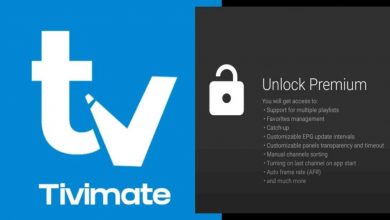From Suspicion to Proof: How Detectives Uncover Extramarital Affairs

Dealing with cheating in a relationship. In modern society people can now talk to anyone without filters and keep secrets thus it is easier for partners to belt a story. When your partner starts to act distant, makes unusual calls during the night or vanishes with no idea to where they are going, the truth is something you start to wonder about.
Being in the dark can a lot of the time hurt more than knowing the full circumstances which is why people tend to hire private investigators . A PI uses their knowledge and personal judgement and methods not to merely surplus emotions and assumptions, but to find the truth. All the actions they take are not for the mere purpose of people watching, the intention is to ensure the person gets inner peace with the proof they need to make better life decisions.
Let’s find out exactly how private investigators approach extramarital affairs investigation, the actions of people for whom the partner is cheating, and the importance of the assistance of a person who in the given situation can provide real help to uncover the truth.
Why Do People Hire Private Investigators for Infidelity?
When something strange happens in a relationship, it can make you feel very stressed and unsure. People might notice that you work strange hours, act secretive, have secret online chats, or go on trips that don’t make sense. When you try to find out the truth on your own, you often hit dead ends or, even worse, you lose trust or get into trouble with the law. Private investigators are professionals who don’t have any personal interests and can find evidence that can be used in personal, legal, or even court cases.
People hire investigators for these reasons:
- Need for solid evidence before doing something or talking to someone
- Looking for peace of mind and an end to things
- You need proof to file for divorce, get alimony, or fight over child custody.
- Staying out of trouble and avoiding escalation without proof
Core Methods Used by Private Investigators in Extramarital Affairs Cases
1. Surveillance
Most cheating investigations use surveillance to find out what happened. Professional investigators use a number of legal ways to watch, record, and follow the movements of a partner they think is cheating.
Some of the ways are:
- Observing someone in person (quietly following them around in public places)
- Driving cars that don’t have markings and blending in with the crowd
- Getting good pictures and videos of meetings, dates, or private events
- The team watches the subject when they move around a lot or when the case is very complicated.
Surveillance makes reliable visual evidence and timelines, which is important for both peace of mind and possible legal use.
2. Digital Forensics:
How to Find Out About Affairs in a World Where Everything Is Linked
Most affairs leave behind a digital trail. Private investigators know how to legally get and look at electronic evidence, which could include:
- Looking at social media for posts, messages, or new “friends” that could give away information
- Checking call logs and cell phone records (with the right permission)
- Getting back texts or emails that were deleted
- Keeping an eye on memberships to dating sites and secret messaging apps
- Checking browser history, hotel or travel reservations, and hidden accounts
Smart digital sleuthing can often not only show that an affair is going on, but also how long it has been going on and how serious it is.
3. Financial Investigations
Following the Money Affairs often involve gifts or spending that isn’t made public. The investigators check:
- Look over your bank and credit card statements for any unusual transactions.
- Cash withdrawals that don’t make sense, expensive purchases, hotel bills, or restaurant bills
- Accounts that aren’t open to the public or secret money transfers
Emerging patterns often align with questionable periods or events, thereby exacerbating infidelity.
4. Undercover Operations and Pretexting
In some cases that are very important, investigators may use decoys or undercover methods to check loyalty or behavior. However, they must always follow the law and moral standards.
- Going up to the suspected lover for a good reason
- Confirming hotel or restaurant reservations in a private way
- Using “loyalty tests” made it possible to do assessments based on consent
5. Witnesses Interviews
Private investigators sometimes get help from:
- People who live nearby who see strange people coming and going
- People who work with you who know about inappropriate relationships at work Friends, drivers, or household staff who notice changes in behavior
- Sensitive witness interviews can help fill in the gaps or make the final report better.
What Makes Private Investigators Effective?
Experience and Professionalism
Investigators are fair, well-trained, and can work with anyone. They know how to:
- Watching without being seen
- Following the rules about privacy and evidence
- Technical knowledge of digital forensics and how to get back lost data
- Documentation that is not based on feelings
Privacy and Discretion
Reputation is everything in the world of investigation. So, private investigators with a good reputation promise:
- All information about clients is kept completely secret.
- No sharing of evidence or results without permission. Being aware of how results can make people feel.
Legal Knowledge
A lot of experience as a private detective must have in the investigation process:
- Don’t break into someone’s house, hack their phone, or wiretap them without their permission.
- If you need to investigate your case, make sure that all evidence can be used in court in the future.
- In this situation, help clients to understand what is fine and what it means for you divorce or custody.
The Process: What to Expect
- First meeting: Discuss in detail about your case concerns, go over your past, and figure out the limits of the law and the scope of the work.
- The investigation plan: List the ways you will get information, like watching people, checking their digital footprints, doing financial forensics, and so on.
- Action: Private investigators collect information and evidence over a certain amount of time.
- Reporting: Clear and well-organized, with photos, videos, transcripts, activity logs, and witness statements to back them up.
- Support: Giving advice on the best way to move forward, especially when evidence is used in court.
How Investigators Present Evidence
The final report usually has:
- Photos or videos with a date and time.
- Meeting notes, including where they were held and how often they happened.
- Checked the information that was gathered through interviews or observations.
- You can use this proof to help you understand things better or, in some cases, in court cases like divorce settlements and custody battles.
Choosing the Best Private Investigator
It’s very important to pick the right private investigator when your personal or business life is on the line. You can’t just hire someone to follow a trail; you need to trust a professional who knows the law, respects privacy, and has the skills to find the truth. An investigator should be able to use modern tools and know a lot about how people act.
When you’re looking for the right professional, keep these things in mind:
- Experience and specialization: Does the investigator often work on cases like yours?
- Confidentiality: Can you trust them to keep your private information safe?
- Do they have a lot of success stories or clients who trust them?
- Do they know what the steps are, how long it will take, and how much it will cost?
If you pick the right thing here, you’ll get answers and peace of mind.
Why Spy Detective Agency Stands Out
Among detective agencies in India, Spy Detective Agency, the best detective agency in Mumbai has a reputation for being discreet and detail oriented, fulfilling the clients’ needs and expectations. The agency has a good reputation in the investigation field and has been in business for a long time conducting both personal and business investigations.
The team handles every case professionally and with utmost caution, whether it is conducting surveillance to expose extramarital affairs, pre-marital background investigations, or protecting organizations from fraudulent activities. Clients prefer the spy detective agency because it not only provides them with evidence, but also reassures them about their decisions.
Benefits of Hiring a Private Investigator for Suspected Affairs
If you think your partner is cheating, here are some reasons to hire a private investigator.
- Peace of Mind: Don’t just guess; use facts to back up or put to rest your suspicions.
- Proper Evidence: All of the evidence is collected and written down in a way that will stand up in court, protecting your rights.
- Discretion: Investigators do their jobs quietly and professionally to protect everyone’s dignity.
- Objective Reporting: Just the facts, no personal bias or emotional coloring.
Real-World Example
Imagine a tech consultant in Mumbai whose husband was acting distant, hiding his phone, and “working late” more often. Instead of confronting him without proof, she hired a private investigator who was licensed. The investigator found proof of the affair by watching the couple at night, using digital forensics to find deleted messages and dating app traces, and looking at hotel bills on joint accounts. The results helped her deal with the breakup in a clear and certain way, and they were very important for her case in court.
Conclusion
Evaluating possible cases of infidelity is difficult, however, jumping to conclusions without evidence is even worse. A PI has the ability to discover infidelity and is fully trained on how to protect their clients’ interests with regard to separation with discretion, compassion, and legal knowledge. If a person suspects a spouse of cheating, using the services of a private investigator is a much safer, civil, and expeditious manner than attempting to solve the extramarital affairs investigation case personally. His services enable clients to untangle complex situations and then plan a course of action to safeguard their interests.
Accepting the undertaken decision may not be easy, but one is sure to gain mental satisfaction. This can be in the form of wanting to work things out, closure or legal action. PIs have a false reputation of being cold, unfeeling case openers. This is particularly true in cases of infidelity. They are the ones that in fact help clients regain mental stability and soar to new heights, even during their most desperate times. As with all other private detective agency in Delhi, Spy Detective Agency is renowned for their private, reliable customer service.




